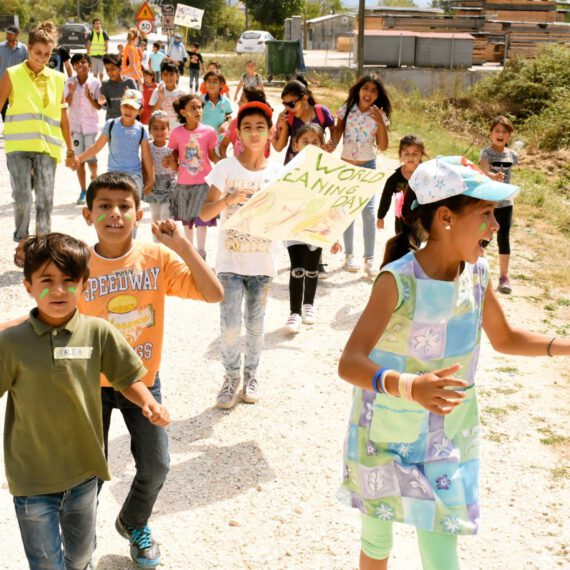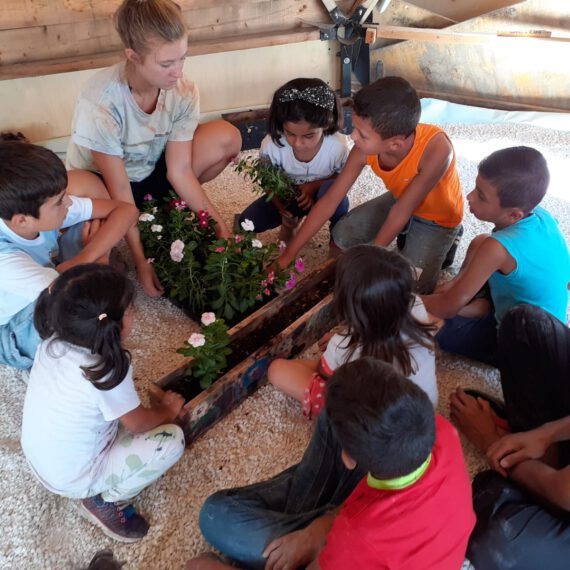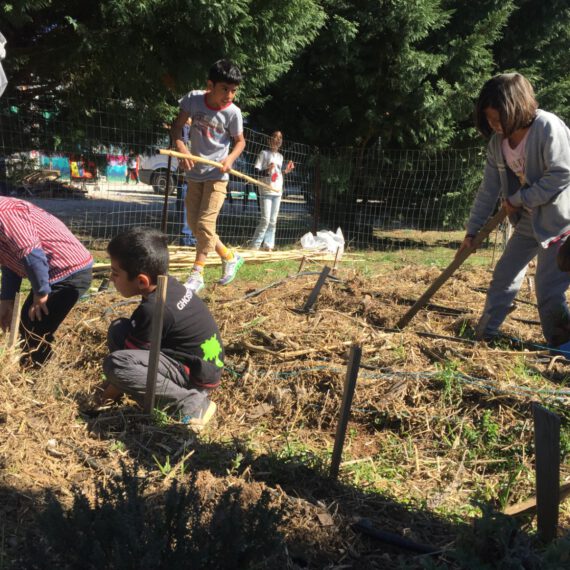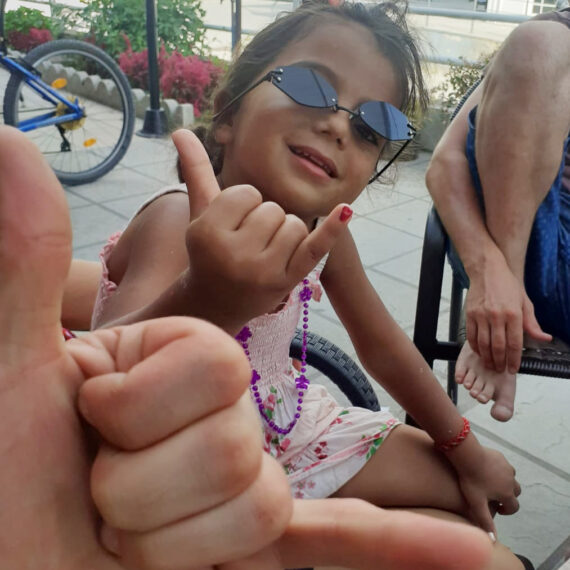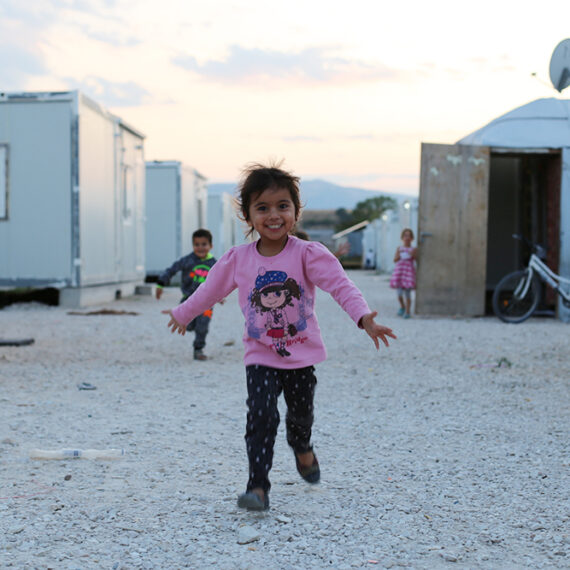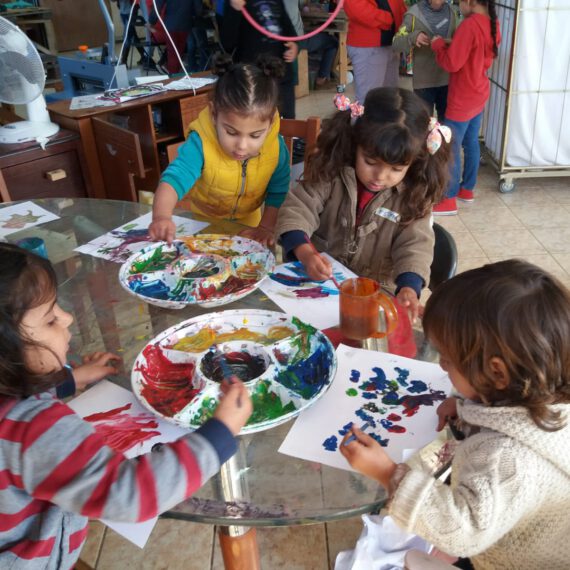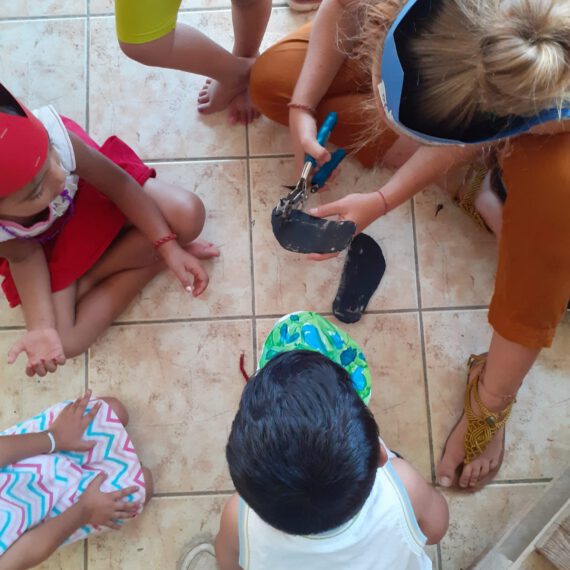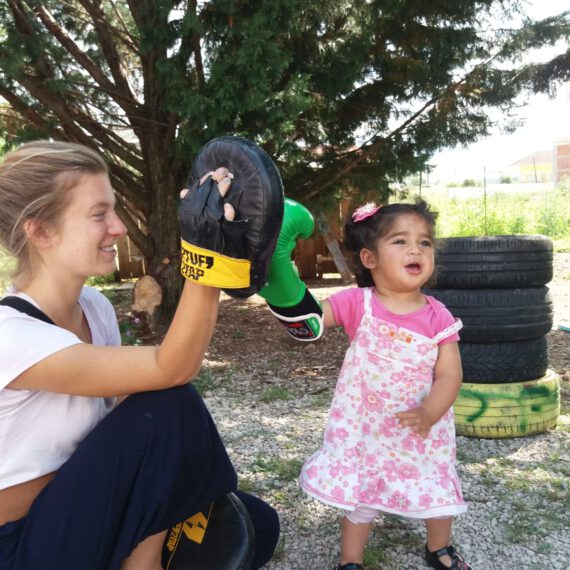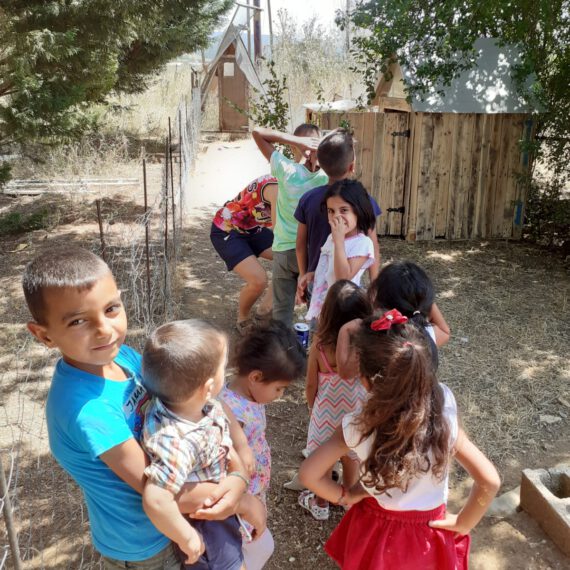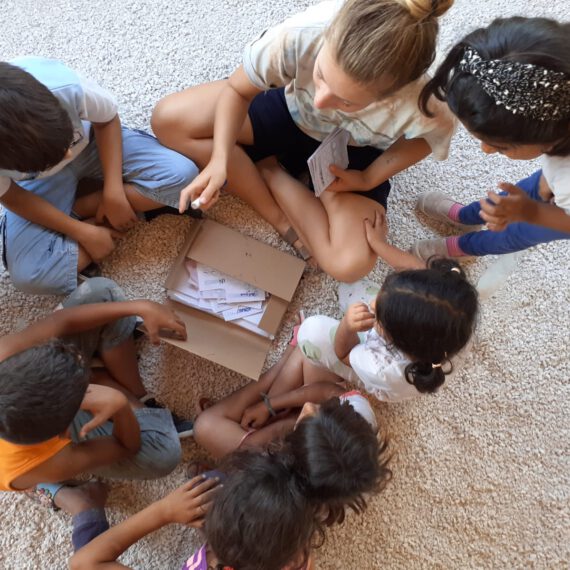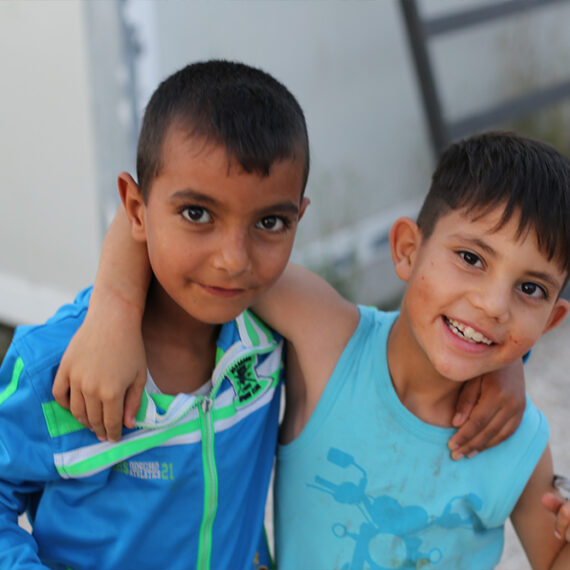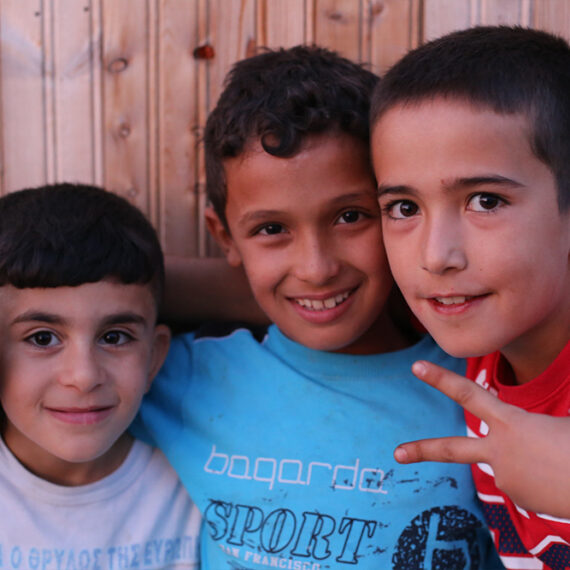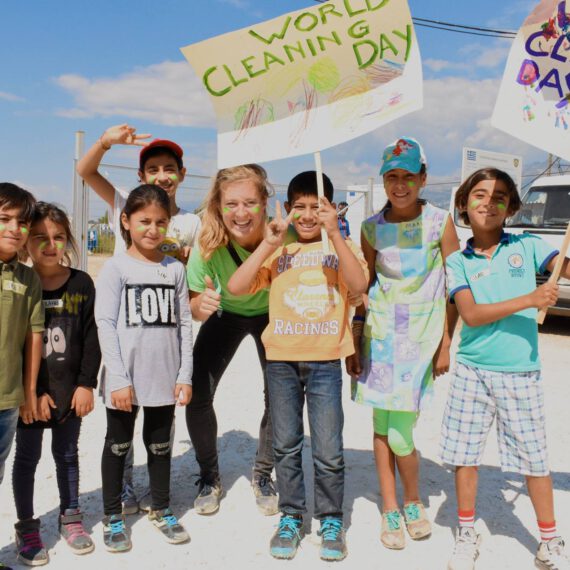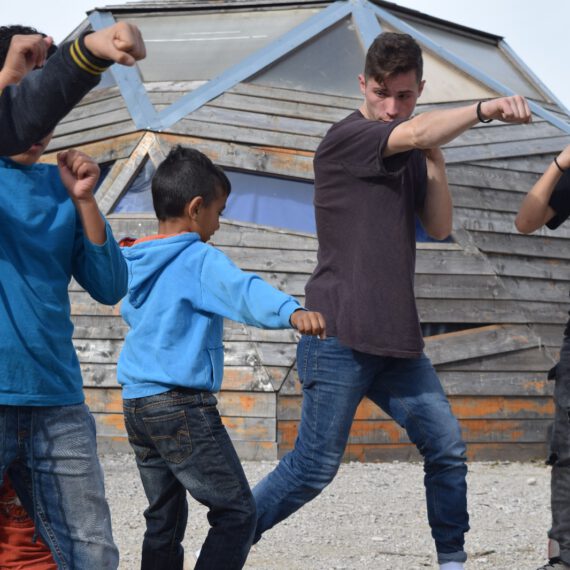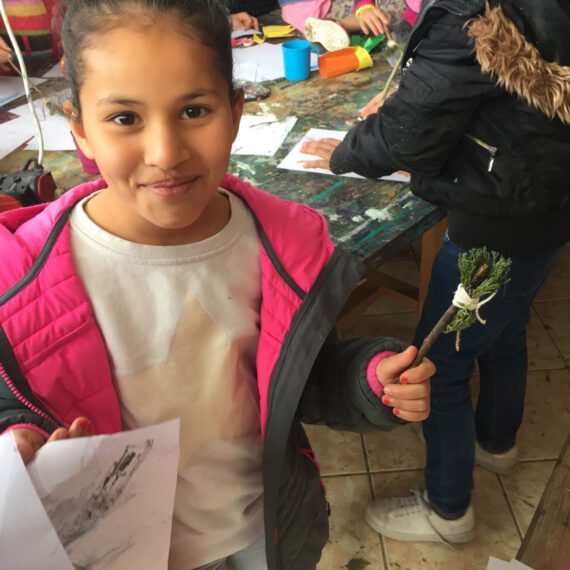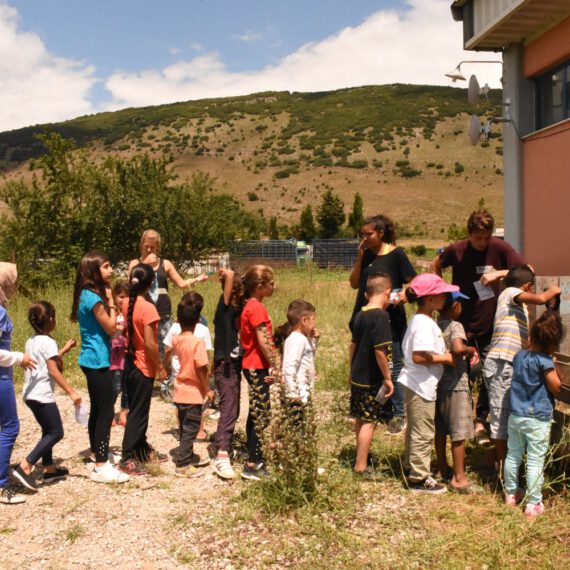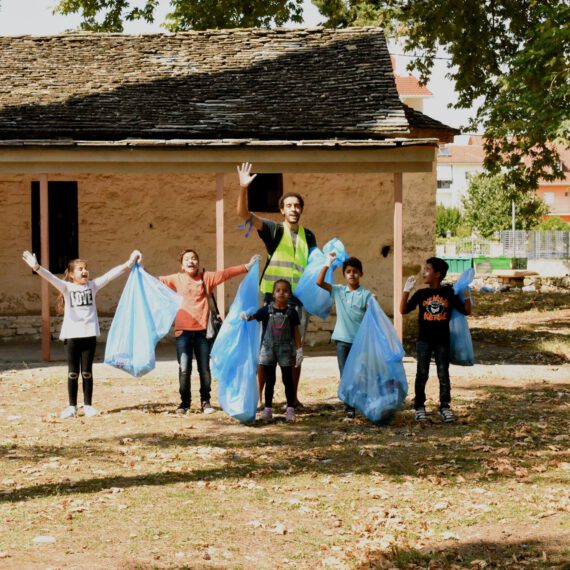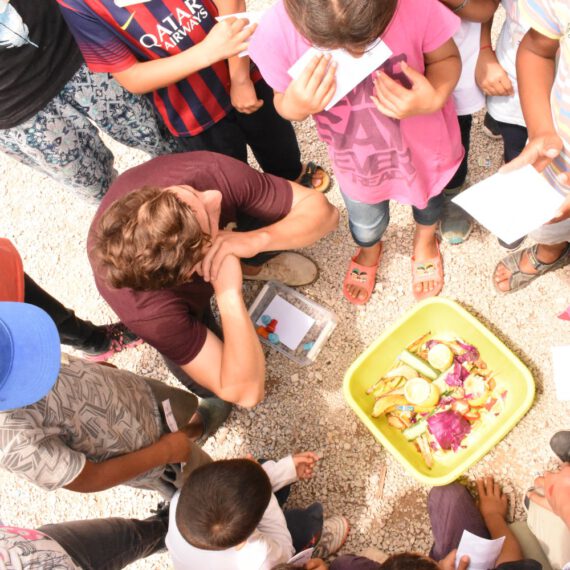The educational services for people living in refugee camps in Greece have always been scarce.
In Ioannina, there was scout project of Second Tree focused on teenagers and a kindergarten.
Habibi.Works (an intercultural makerspace) opened on Saturday the doors to host Kids and teach them crafts.
But for long periods of time that was it and children were simply missing out on adaquet spaces to learn and grow.
As a work shop manager in Habibi.Works, I recognized the need for a more holistic education. The kids were lacking a basic environmental and social awareness, due to their parents being overwhelmed and the traumas they faced.
This I wanted to change, by setting up Team Environment based on Habibi.Works‘ kids day, widening and deepening the learnings for the kids.
This project had two focuses – included as 1-5 years youth program:
Team: creating an awareness and understanding of fair, sustainable, and collaborative interaction with others.
Environment: creating awareness for the need to interact positively with the man-made and natural environment and providing tools to do so.


